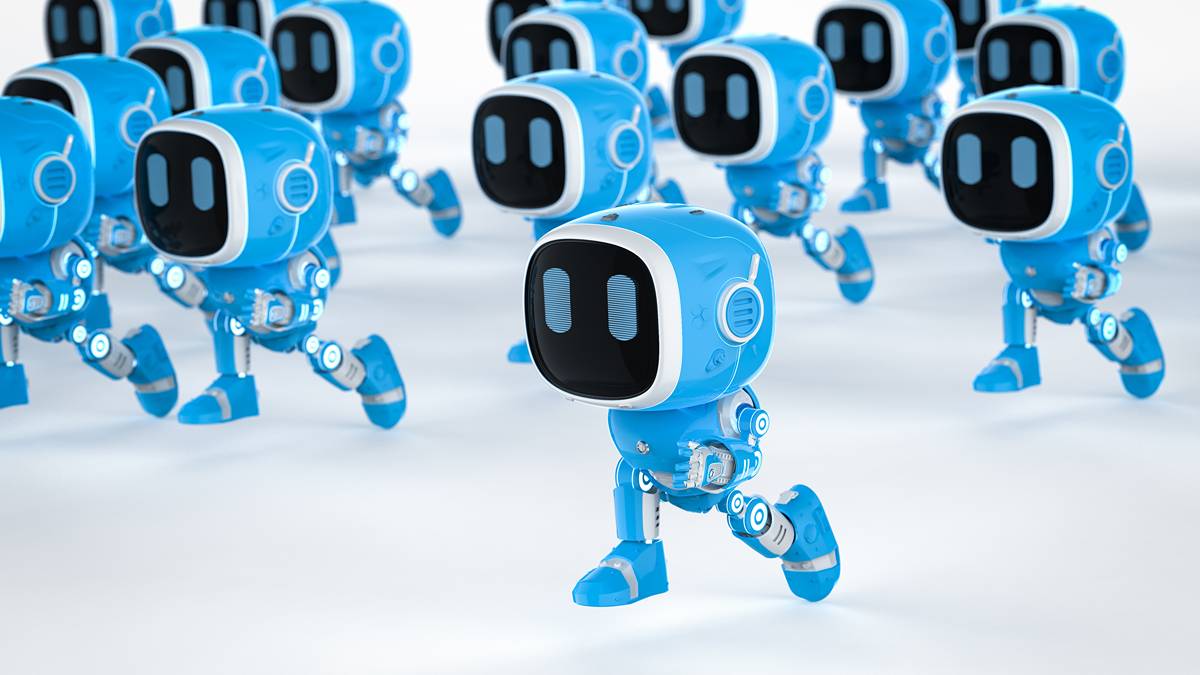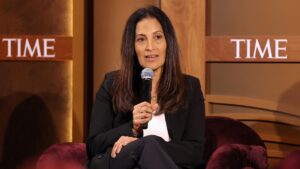AI to drive new generation of winners and losers

Pic via Getty Images
The faster pace of technological changes, driven by artificial intelligence, will lead to new “super clusters” of leading companies, according to New York-based analyst Viktor Shvets.
Mr Shvets, who will speak at the Impact Investment Summit in Sydney in March, said the emergence of China-based artificial intelligence company DeepSeek, was another sign that there were no longer any “moats” around leading companies such as Meta, Google and Apple.
He said many of the leading companies of the future, including those which will use artificial general intelligence (AGI), where machine learning is as good or better than human learning, might not even exist today.
“AI is still in the early stages of AGI, which will continue to propagate on a massive scale,” he said. “A super cluster of innovation is occurring which will incorporate everything we do.”
Mr Shvets said the change would result in the current Magnificent Seven group of leading US companies being replaced by a new generation of businesses.
But it was too early to tell which companies would be winners and which would be losers.
“It’s too early to say they are overinvested or overcapitalised or that valuations are too high,” he said. “But you will get to a stage where some companies have overcapitalised, and they will disappear.”
The rapid changes would also mean a high concentration of returns from the companies deemed to be winning the technological race.
“If you can destroy companies quite quickly because there are no moats, you can build a brand or a new company very quickly,” Mr Shvets said.
“The concentration will always be high, but we won’t have the same names.
“When people used to say the Magnificent Seven, there will be a Wonderful Ten or whatever.
“It doesn’t have to be the same companies. The concentration of returns will be high, but the names will be different.”

Mr Shvets said the accelerating potential of AI would accelerate productivity in businesses which were able to use it.
“But businesses have to be quite courageous to embrace it, which is why a lot of companies don’t do it,” he said. “They are just followers.”
A global strategist with Macquarie Capital, Mr Shvets was speaking in his capacity of author of The Twilight Before the Storm – How to Avoid a World on Fire, which he will talk about at the conference.
The book argues that the world is at a 1930s-style crossroads, where the current levels of polarisation in society could result in social disruption unless there is a greater focus on the people who are losing out in the era of rapidly changing technology and the “financialisation” of the economy.
He said the world in the ’30s had a debate about different political and economic models including fascism, communism and “some form of constrained democracy”.
“We are as polarised now as we were in the 1930s,” he said.
His book recommends more government intervention in the economy to help the people left behind by rapid change.
“The next decade promises to be the most critical in terms of the transition from today’s capitalism to a yet-to-be-defined alternative system,” he said.
Mr Shvets was born in the Ukrainian capital Kyiv, when it was part of the Soviet Union, before moving to Australia.
He has worked in Sydney, Melbourne, Hong Kong, London, New York and Moscow for global investment banks including Citibank, Barings Securities, Deutsche Bank, DLJ and Lehman Brothers before joining Macquarie.
“The speed of change is accelerating,” he said. “What will have taken 10 years, will take two years, will take three months. And will continue going up and up.
“If you think of Amazon, even five years down the track when it was floated, it was a relatively small company. “It took about 15 years for it to grow into what it has become now.
“If you look at Google, when it came to market it was fairly small. It took over a decade to get to where it is now.
“Today you can do those things in a few quarters.”
Mr Shvets said the pace of change would accelerate even more with the adoption of AI.
“Artificial intelligence is a general purpose technology which permeates everything we do, from robotics, to automation, to bio tech and manufacturing.”
Mr Shvets said the mixture of technology and financialisation had eliminated economic and market cycles.
Past estimates had forecast it would take 20 years for artificial intelligence to be able to operate at the same level as human intelligence, but “today people are saying it will be closer than that”.
“If this disruption continues, the functioning of labour and capital will continue to change.
“It is going to disrupt societies politically and geopolitically.”
Mr Shvets warned that the rapid level of changes would put pressure on social cohesion, and the elimination of jobs by technology also had implications for aggregate demand.
“If we disintermediate labour as a function of capital, how are we going to keep the demand going?” he said. “If we allow all the technological gains to go to a small minority, and income and wealth inequality continues to rise, how do you maintain aggregate demand?”
This article first appeared in The Australian.
Related Topics
UNLOCK INSIGHTS
Discover the untold stories of emerging ASX stocks.
Daily news and expert analysis, it's free to subscribe.
By proceeding, you confirm you understand that we handle personal information in accordance with our Privacy Policy.








